 A view through the gate of the Islamic University of Gaza, where bombed buildings have doubled as shelters for families amid the genocide, on Oct. 16, 2025. Photo: Khames Alrefi/Anadolu via Getty Images
A view through the gate of the Islamic University of Gaza, where bombed buildings have doubled as shelters for families amid the genocide, on Oct. 16, 2025. Photo: Khames Alrefi/Anadolu via Getty Images ![]()
Taqwa Ahmed Al-Wawi is a 19-year-old writer and poet from Gaza. She is currently a second-year English literature student at the Islamic University of Gaza.
In Gaza, where universities lie in rubble and classrooms have been replaced by screens, education has refused to die. Amid the constant hum of drones and power outages, students and educators have fought to keep learning — and to restore their campuses for the next generation.
Studying was “an escape,” amid the genocide, said Aseel, a student of English translation at the Islamic University of Gaza, “a small space of hope and achievement that gave me motivation to keep going.”
Students and faculty at the Islamic University of Gaza, where I study English literature, described in interviews how they kept studying throughout two years of genocide by charging their laptops with solar energy, watching recorded lectures, and meeting in improvised study groups. The stopgap measures have allowed education to continue amid the most extreme conditions, but Gaza’s universities now need millions of dollars to rebuild the educational system. The Islamic University recently announced that it had begun initial renovations.
Samah, a 21-year-old translation student at the Islamic University, said studying online felt like “a desperate attempt to keep learning despite everything.”
“It was frustrating,” she said. “The internet was weak, and I’d lose time reconnecting. But after every exam I managed to pass, I felt an achievement — it gave me strength to continue.”
Israel’s destructive campaign often cuts off internet access entirely. “If I had the slides and books printed, I could study temporarily until power and the internet came back,” said Aseel. “We depended mainly on recorded lectures — they were comprehensive, but there was little engagement.”
“If I had the slides and books printed, I could study temporarily until power and the internet came back.”
These measures were necessary in part because Israel has engaged in scholasticide, the intentional destruction of a society’s educational infrastructure. According to figures released by the European Training Foundation, by the spring of this year 95 percent of all school buildings in Gaza had been damaged or destroyed — including every university. The Islamic University announced in November 2024 that extensive genocide damage had destroyed 16 of its buildings, the central library, and over 240,000 books, 8,000 periodicals, and more than 16,000 master’s and doctoral theses — an estimated $141.9 million value.
“We lost equipped labs, classrooms, and office work materials — much of our physical resources vanished,” said Tawfiq, the former dean of the Faculty of Information Technology.
The university has developed a reconstruction plan requiring approximately $15 million for rebuilding campuses, purchasing equipment and furniture, and other student resources. According to a recent university announcement, limited renovations have begun on the Faculty of Medicine and other colleges. But for most of the necessary work, said Ismail, director of the engineering office, there is “no funding yet.”
Besides the destruction, the university waived tuition fees during the first year of the genocide — making it easier for students to continue learning but meaning the institution would miss out on its already limited revenue.
But the human toll was the most devastating. From 2023 to 2024, 56 academic and administrative employees at the Islamic University of Gaza were killed, according to the university’s public figures. Approximately 1,500 employees did not receive salaries in the same period. And 17,000 students dropped out of their studies due to the genocide.
Because the Israeli military has repeatedly targeted Gaza’s educators, the students and faculty interviewed for this story are being identified by their first names only for their safety.
When I graduated from high school in 2023, I was excited to major in English literature at the Islamic University of Gaza. I was less than a month into my first year of university when Israel’s genocide made physical classrooms inaccessible.
Charging my laptop and phone added to the existing challenges of studying amid genocide — especially during winter, when solar energy wasn’t available — and internet outages were constant. When there was bombing or when Israel deliberately cut communications, everything stopped. You could study all day and night, but sometimes your exam gets ruined by an internet cut — all your effort gone in seconds.
“Online learning was just a way to get through the courses. It lacked the soul.”
We learned to adapt. Whenever I had electricity and internet, I downloaded all the lectures and materials in advance, so I could study offline later.
“Online learning was just a way to get through the courses,” said Hala, a student of Islamic law, who said she wants to use her law degree to fight for justice. “It lacked the soul: the early walks to class, the debates, the cafes, the sea road to university … that was real learning.”
For some students, the brutalities of genocide coincided with the typical mundanities of schooling. Mo’min, a web computing student, described his experience as a battle with both genocide and procrastination.
“Because nothing was mandatory, it was easy to delay things,” he admitted. “But I charged my phone early every morning, downloaded lectures, and followed along with the chapters.”
He said some professors “deserve to be saluted,” while others disappeared under the strain of genocide. Despite psychological exhaustion, faith kept him grounded. “I comforted myself with the Qur’an,” he said. “I learned to depend on myself — completely.”
“Education played a vital role in supporting the psychological and social endurance of students, faculty, and families alike,” said Sulaiman, a professor and specialist in educational foundations and administration. He stressed that professors worked hard to keep in touch with students under “extremely difficult circumstances.”
As Gaza rebuilds, professors are hoping to gradually reopen classrooms with essential furniture and equipment. They plan to prioritize laboratories and smart classrooms for hands-on training. And as soon as reconstruction allows, they hope for a full return to face-to-face education.
“The university’s future is tied to the country’s reconstruction,” Sulaiman said. “When Gaza rebuilds, the university will rise architecturally and become a leading institution. Curricula should also evolve to meet contemporary demands and develop students capable of thriving in modern life.”

 German (DE)
German (DE)  English (US)
English (US)  Spanish (ES)
Spanish (ES)  French (FR)
French (FR)  Hindi (IN)
Hindi (IN)  Italian (IT)
Italian (IT)  Portuguese (BR)
Portuguese (BR)  Russian (RU)
Russian (RU) 
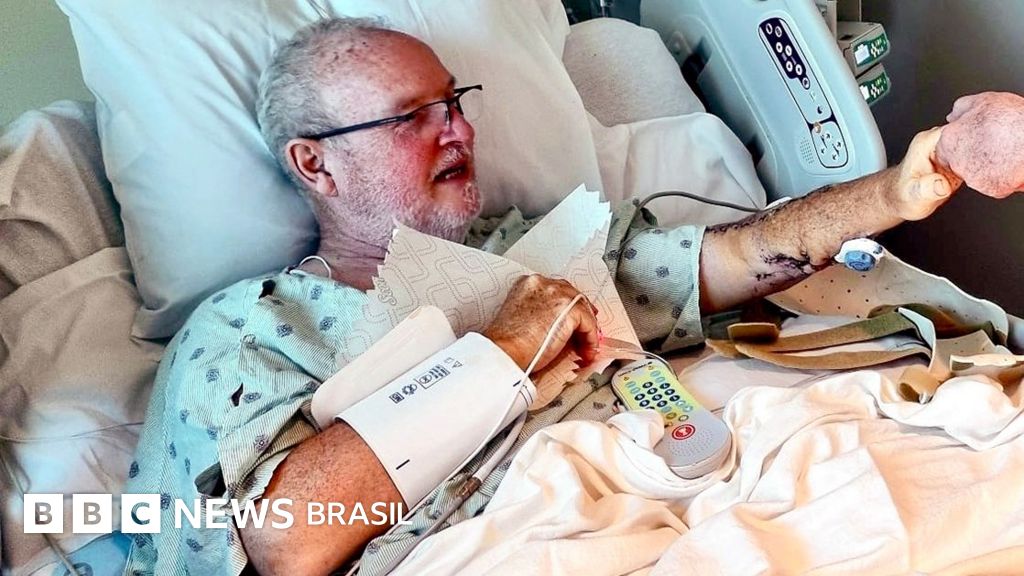



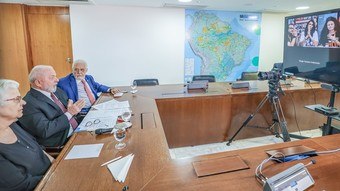
:strip_icc()/i.s3.glbimg.com/v1/AUTH_59edd422c0c84a879bd37670ae4f538a/internal_photos/bs/2023/l/g/UvNZinRh2puy1SCdeg8w/cb1b14f2-970b-4f5c-a175-75a6c34ef729.jpg)

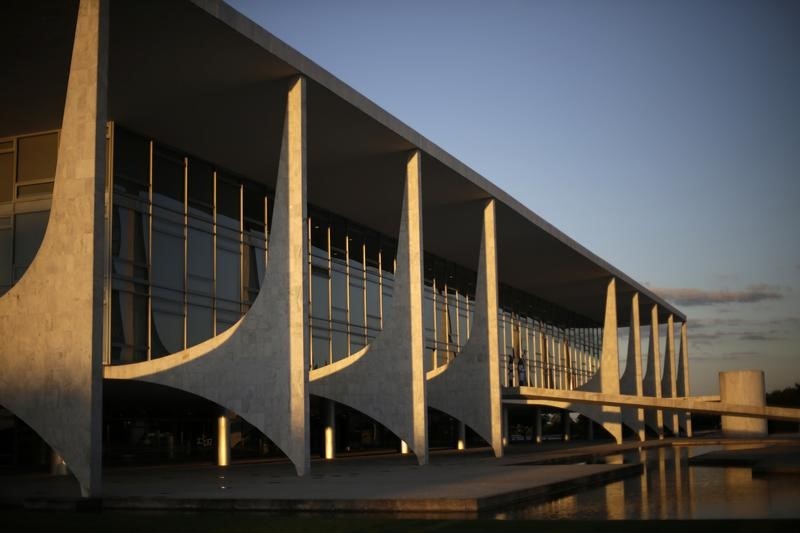

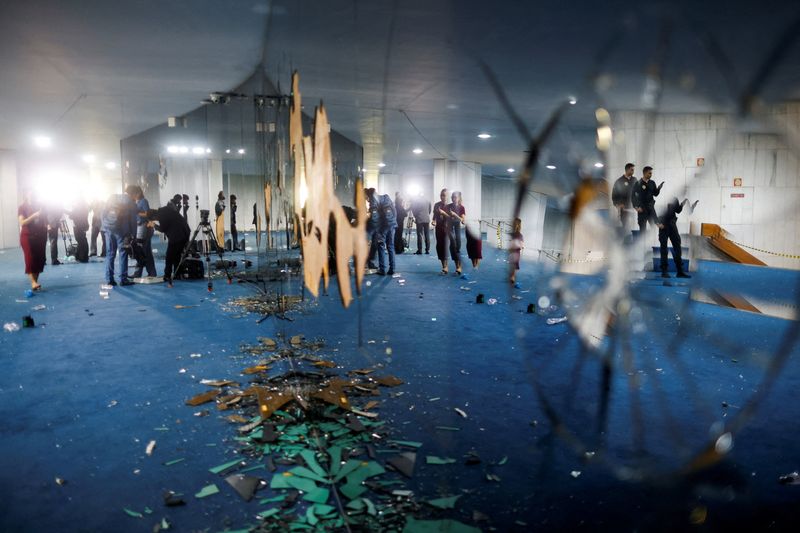


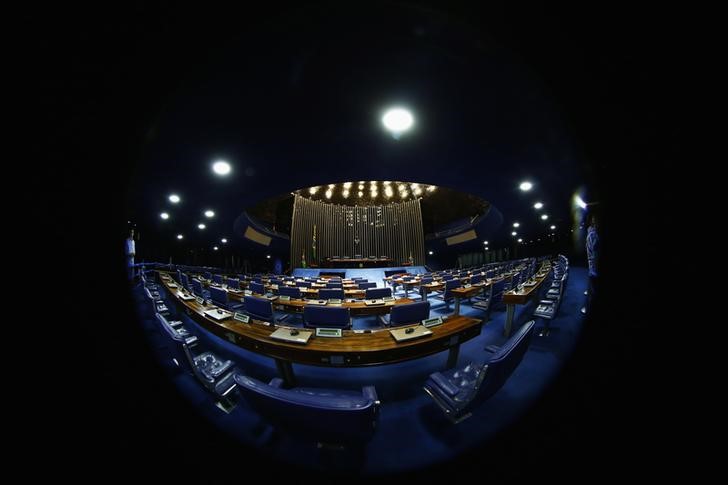
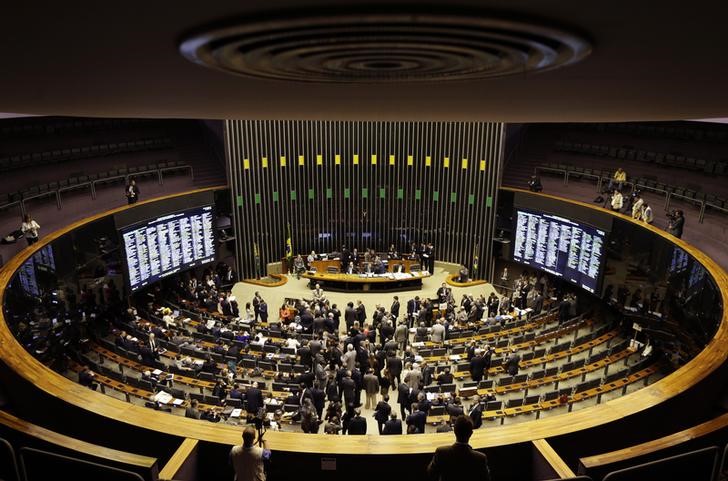


Comentários
Aproveite ao máximo as notícias fazendo login
Entrar Registro